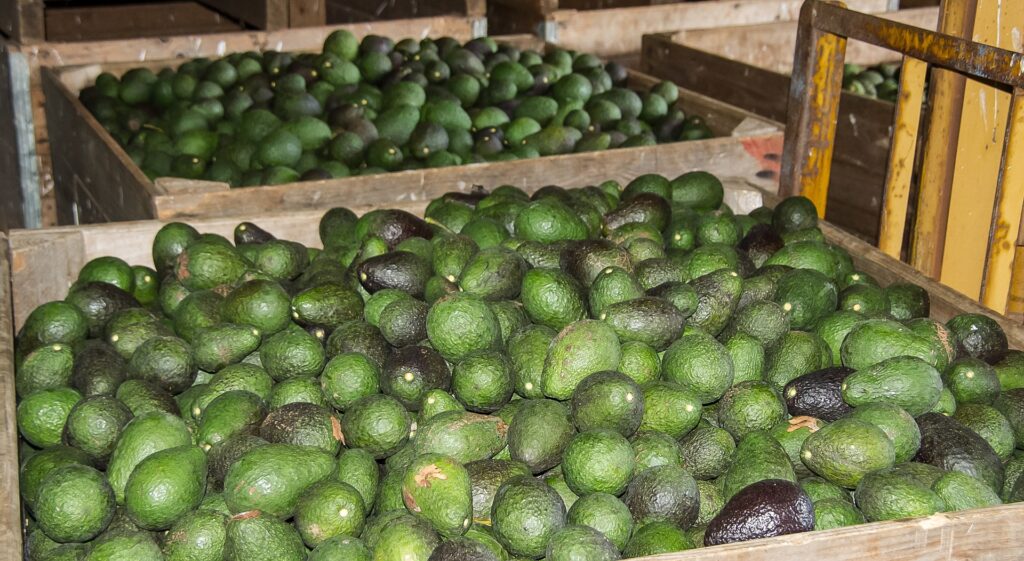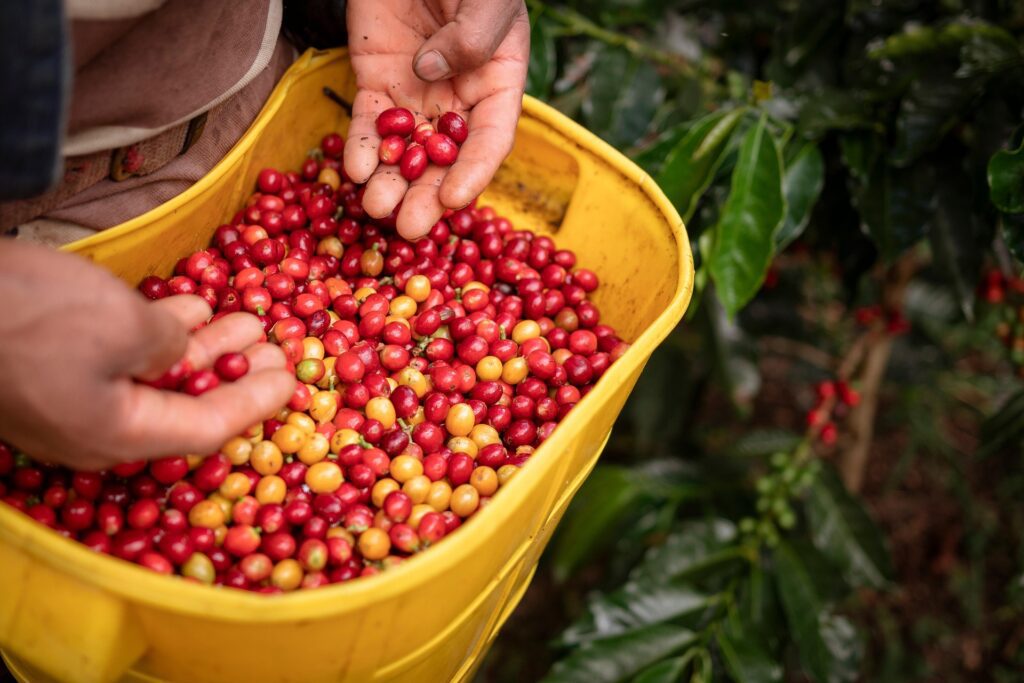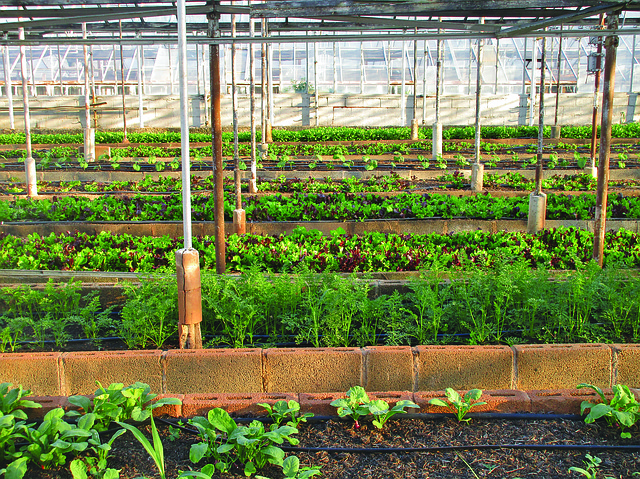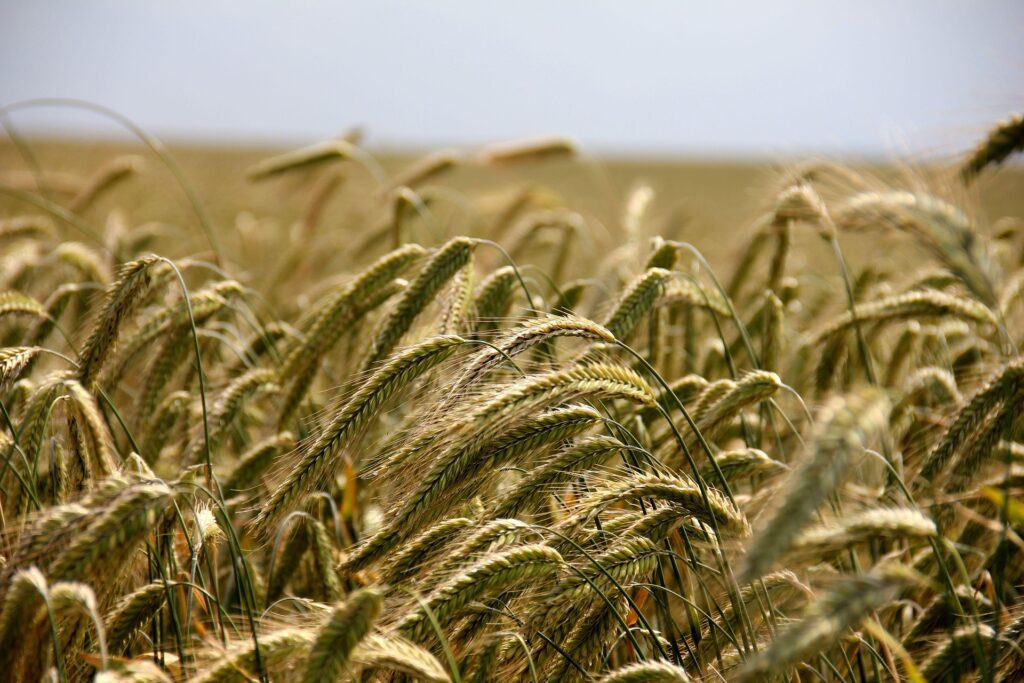Table of Contents
Introduction
Organic Farming Project In recent years, organic farming has emerged as a sustainable alternative to conventional agricultural practices. As consumers become increasingly health-conscious and environmentally aware, the demand for organic products has surged. This shift not only benefits the environment but also opens up numerous opportunities for individuals seeking personal fulfillment and professional success in the agricultural sector.
Engaging in an organic farming project can serve as a pathway to both personal and professional success. This blog will delve into the principles of organic farming, its benefits, the skills and career opportunities it offers, the challenges faced by organic farmers, and inspiring success stories from those who have embraced this rewarding path. By the end, you will understand why an organic farming project can be a transformative experience.Organic Farming Project

Section 1: Understanding Organic Farming
Definition of Organic Farming
Organic farming is an agricultural system that emphasizes the use of natural processes and materials to cultivate crops and raise livestock. It avoids synthetic fertilizers, pesticides, genetically modified organisms (GMOs), and other artificial inputs. Instead, organic farmers focus on building healthy soils, promoting biodiversity, and maintaining ecological balance.Key principles of organic farming include:Organic Farming Project .
Organic farming is an agricultural system that emphasizes the use of natural processes and materials to cultivate crops and raise livestock. It avoids synthetic fertilizers, pesticides, genetically modified organisms (GMOs), and other artificial inputs. Instead, organic farmers focus on building healthy soils, promoting biodiversity, and maintaining ecological balance.
- Soil Health: Organic farmers prioritize soil fertility through practices like crop rotation, cover cropping, and composting. Healthy soils support diverse microbial life essential for nutrient cycling.
- Biodiversity: Encouraging a diverse ecosystem helps control pests naturally and improves resilience against diseases. This includes planting a variety of crops and using companion planting techniques.
- Sustainable Practices: Organic farming promotes sustainability by reducing reliance on non-renewable resources and minimizing environmental impact. Techniques such as rainwater harvesting and renewable energy use are common in organic farms.
Historical Context
The roots of organic farming can be traced back to ancient agricultural practices where farmers relied on natural methods to grow crops. However, the modern organic movement began in the early 20th century as a response to the industrialization of agriculture. Pioneers like Sir Albert Howard and Lady Eve Balfour advocated for holistic farming practices that respected nature’s processes
.The establishment of certification standards in the late 20th century further propelled organic farming into the mainstream. The USDA’s National Organic Program (NOP) was established in 2000 to regulate organic standards in the United States. Today, organic agriculture is recognized globally as a viable method for producing food sustainably.Organic Farming Project
Moreover, studies indicate that organic dairy products may have higher omega-3 fatty acid content due to grass-fed livestock diets. This nutritional advantage makes organic foods appealing for individuals seeking healthier dietary options Organic Farming Project
Current Trends in Organic Farming
The rise of organic farming is evident in both consumer demand and market growth. According to the Research Institute of Organic Agriculture (FiBL), global sales of organic products reached over $100 billion in recent years, with significant growth observed in North America, Europe, and Asia.Key trends shaping the future of organic farming include:
As of January 2025, organic farming continues to evolve rapidly, driven by consumer demand, technological advancements, and environmental concerns. This detailed exploration of current trends in organic farming will cover various aspects, including market growth, technological innovations, consumer behavior, and sustainability practices.Organic Farming Project


1. Growing Market Demand
The organic farming market is experiencing significant growth. According to recent reports, the global organic farming market size is projected to increase from approximately $207.05 billion in 2024 to $230.19 billion in 2025, reflecting a compound annual growth rate (CAGR) of 11.2% 2. This growth is attributed to several factors:Organic Farming Project
- Health Consciousness: Consumers are increasingly aware of the health benefits associated with organic products. The rising prevalence of lifestyle-related diseases has led many individuals to seek out foods that are free from synthetic pesticides and fertilizers. A survey indicated that over 52% of American adults follow specific diets or eating patterns that prioritize health 2.
- Environmental Awareness: As awareness grows regarding the adverse effects of chemical farming on soil health and biodiversity, more consumers are opting for organic products that promote ecological balance.
- Urbanization: Urban areas are witnessing a surge in demand for organic produce as city dwellers become more health-conscious and seek fresh, locally sourced food.
2. Technological Innovations
Technology plays a crucial role in transforming organic farming practices. Innovations are making it easier for farmers to adopt sustainable methods while improving efficiency and productivity:
- Precision Agriculture: Farmers are increasingly utilizing precision agriculture techniques that involve the use of data analytics, GPS technology, and remote sensing to monitor soil health, manage crops effectively, and optimize resource use 1. This technology allows for targeted interventions that enhance yields while minimizing waste.
- Soilless Systems: The expansion of soilless growing systems, such as hydroponics and aeroponics, is gaining popularity due to their efficiency in water usage—using up to 90% less water than traditional soil-based methods 3. These systems can produce high yields in urban environments where space is limited.
- Mobile Applications: Farmers are leveraging mobile applications for better farm management. These apps help track crop health, manage labor schedules, and connect with consumers directly for sales.
3. Consumer Trends
The preferences of consumers are shifting significantly in favor of organic products:
- Increased Accessibility: Organic products are becoming more accessible through supermarkets, online platforms, and local farmers’ markets. The convenience of purchasing organic goods has contributed to their growing popularity.Organic Farming Project
- Branding and Certification: As the demand for organic products rises, branding and certification have become vital for farmers looking to differentiate their products in the market. Organic certification ensures compliance with established standards, building consumer trust 1.
- Collaborative Consumption: There is a growing trend towards community-supported agriculture (CSA) programs where consumers subscribe to receive regular deliveries of fresh produce directly from local farms. This model fosters a connection between consumers and producers while supporting local economies.
4. Sustainability Practices
Sustainability remains at the forefront of organic farming practices:
- Regenerative Agriculture: Many organic farmers are adopting regenerative practices that focus on restoring soil health through techniques like cover cropping, crop rotation, and agroforestry 8. These practices not only improve soil fertility but also enhance biodiversity on farms.
- Water Conservation: Advanced water-saving technologies are being implemented to address water scarcity issues. Techniques such as drip irrigation and rainwater harvesting help optimize water use while maintaining crop health 3.Organic Farming Project
- Integration of Traditional Knowledge: Farmers are increasingly recognizing the value of traditional agricultural practices that align with organic principles. Techniques such as mixed farming and natural pest control methods are being integrated with modern organic farming techniques to create resilient systems 1.Organic Farming Project
5. Government Support and Policy Framework
Governments worldwide are recognizing the importance of promoting organic farming as part of their agricultural policies:
- Subsidies and Training Programs: Many governments provide financial assistance and training programs aimed at encouraging farmers to transition to organic practices. For example, India has seen a significant increase in new entrants into organic farming due to government initiatives 4.
- Export Opportunities: Countries like India are capitalizing on their potential as major exporters of organic products. The Indian government aims to boost its organic exports significantly by supporting farmers through various schemes Organic Farming Project
These trends highlight how organic farming is not only a method of food production but also a movement towards sustainable living.Organic Farming Project
Section 2: Benefits of Organic Farming


Health Benefits
One of the most compelling reasons for consumers to choose organic products is their potential health benefits. Research suggests that organic fruits and vegetables often contain higher levels of antioxidants, vitamins, and minerals compared to conventionally grown counterparts.
By avoiding synthetic pesticides and fertilizers, consumers reduce their exposure to harmful chemicals that may pose health risks.Moreover, studies indicate that organic dairy products may have higher omega-3 fatty acid content due to grass-fed livestock diets. This nutritional advantage makes organic foods appealing for individuals seeking healthier dietary options.Organic Farming Project
Environmental Benefits
Organic farming practices contribute significantly to environmental sustainability. Some key environmental benefits include:
- Soil Health: Organic methods improve soil structure and fertility through natural amendments like compost and manure. Healthy soils support diverse microbial life essential for nutrient cycling.
- Biodiversity Conservation: By promoting diverse cropping systems and avoiding chemical inputs, organic farms create habitats for various species—enhancing local ecosystems.Organic Farming Project
- Water Quality Protection: Organic practices minimize runoff from fertilizers and pesticides into waterways, protecting aquatic ecosystems from contamination.
- Climate Change Mitigation: Organic farming sequesters carbon in soils through practices such as cover cropping and reduced tillage—contributing positively towards climate change mitigation efforts.
Economic Benefits
Engaging in an organic farming project can also yield economic advantages:
- Higher Profit Margins: Organic products typically command higher prices in the market due to consumer willingness to pay a premium for perceived quality and sustainability.
- Growing Market Opportunities: The increasing demand for organic produce creates opportunities for new entrants into the market—whether through direct sales at farmers’ markets or online platforms.Organic Farming Project
- Government Support: Many governments provide grants or subsidies aimed at supporting sustainable agriculture initiatives—making it financially viable for aspiring farmers to start their projects.
These economic benefits make pursuing an organic farming project not only personally rewarding but also financially sustainable.
Section 3: Personal Development Through Organic Farming
Skill Development
Engaging in an organic farming project fosters personal growth through skill development across various areas:
- Problem-Solving Skills: Farmers face numerous challenges daily—from pest management issues to weather-related setbacks. Developing effective problem-solving strategies enhances resilience.Organic Farming Project
- Leadership Abilities: Managing a farm requires strong leadership skills—whether overseeing employees or coordinating community outreach efforts.
- Technical Knowledge: Understanding agricultural practices—including soil management techniques or pest control measures—equips individuals with valuable expertise applicable beyond just farming!
Networking Opportunities
Networking plays an essential role within any industry—including agriculture! Building connections among peers allows professionals access resources such as mentorships/job leads while fostering collaboration opportunities!Participating in industry conferences/events provides platforms where aspiring farmers meet experienced growers sharing insights gained throughout their journeys! These interactions inspire new ideas while reinforcing commitment towards achieving common goals related sustainability/prosperity!Organic Farming Project
Participating in industry conferences/events provides platforms where aspiring farmers meet experienced growers sharing insights gained throughout their journeys! These interactions inspire new ideas while reinforcing commitment towards achieving common goals related sustainability/prosperity!
Entrepreneurial Spirit
Organic farming encourages entrepreneurship through innovation/new business models! Many successful entrepreneurs have emerged from this sector—developing unique products/services that meet consumer demands while addressing environmental concerns!
For example; vertical farming startups utilize technology-driven approaches maximize yields within limited spaces—demonstrating how creativity can lead towards sustainable solutions!Engaging with entrepreneurial initiatives inspires individuals think outside traditional frameworks—encouraging them pursue ventures aligned with their passions/interests!Organic Farming Project
Engaging with entrepreneurial initiatives inspires individuals think outside traditional frameworks—encouraging them pursue ventures aligned with their passions/interests!


Section 4: Career Opportunities in Organic Farming
Diverse Career Paths
The agribusiness sector offers diverse career opportunities across various fields:
- Farm Manager: Responsible for overseeing daily operations on farms—including crop planning, labor management, budgeting, etc.
- Agricultural Economist: Analyzes economic trends affecting agriculture—providing insights that inform policy decisions or business strategies.
- Agronomist: Focuses on improving crop production through research on soil management techniques or pest control measures.
- Food Scientist: Works on improving food safety standards while developing new products or processes within food manufacturing.
- Supply Chain Manager: Ensures efficient movement of goods from producers through processors down towards retailers—optimizing logistics operations along the way.
- Agricultural Engineer: Designs machinery or structures used in agricultural production; focuses on improving efficiency through technology.
- Environmental Consultant: Advises agricultural businesses on sustainable practices that minimize environmental impact while maximizing productivity.
These roles highlight just a few examples; numerous other positions exist within this dynamic industry!
Education and Training
Aspiring professionals interested in pursuing careers within agribusiness should consider relevant educational pathways:
- Degrees: Many universities offer undergraduate programs focused on agricultural sciences or business administration with concentrations related specifically towards agriculture.
- Certifications: Specialized certifications can enhance credentials—for example; obtaining certification from organizations like Certified Crop Adviser (CCA) demonstrates expertise within specific areas!
Investing time into gaining knowledge/experience prepares individuals well for future roles!
Skills Required
To succeed in agribusiness roles requires specific skills:
- Financial Management: Understanding budgeting processes helps ensure profitability while managing resources effectively.
- Communication: Strong communication skills are essential for collaborating with diverse stakeholders—from farmers to consumers.
- Problem-Solving: The ability to think critically enables professionals tackle challenges that arise unexpectedly within their operations.
Developing these skills enhances employability while fostering career advancement opportunities!
Section 5: Challenges in Organic Farming
Market Challenges
Despite its numerous advantages; agriculture faces challenges such as market volatility! Fluctuating prices for crops/livestock can impact profitability significantly!For instance; droughts or unexpected weather patterns may lead reduced yields causing supply shortages which drive up prices unpredictably! Understanding these dynamics helps professionals navigate uncertainties effectively!


Regulatory Issues
The agricultural sector is subject regulatory scrutiny aimed at ensuring safety standards/protecting consumer interests! Navigating these regulations requires familiarity with local/national laws governing agriculture practices!Staying informed about changes within regulations allows businesses remain compliant while avoiding potential penalties associated non-compliance!
Staying informed about changes within regulations allows businesses remain compliant while avoiding potential penalties associated non-compliance!
Sustainability Concerns
As environmental awareness grows; sustainability concerns have become paramount within agriculture! Professionals must address issues related resource depletion/pollution caused by conventional farming methods!Adopting sustainable practices such as regenerative agriculture promotes soil health while reducing negative impacts on ecosystems! Embracing these principles not only benefits our planet but also enhances long-term viability within this industry!
Adopting sustainable practices such as regenerative agriculture promotes soil health while reducing negative impacts on ecosystems! Embracing these principles not only benefits our planet but also enhances long-term viability within this industry!Organic Farming Project
Section 6: Success Stories in Organic Farming
Case Studies of Successful Organic Farmers
Highlighting individuals who have made significant contributions within this field serves as inspiration for aspiring professionals! For example:
- Will Allen: Founder of Growing Power—a nonprofit organization focused on urban agriculture promoting sustainable practices across communities nationwide!
- Kimbal Musk: Co-founder of Square Roots—a company dedicated urban farming utilizing container-based systems producing fresh produce locally!
These success stories illustrate how passion combined with innovation can lead transformative change within communities while contributing positively towards global food systems!


Lessons Learned from Their Journeys
Key takeaways from these journeys include:
- Embracing failure as part learning process encourages resilience!
- Fostering community engagement builds strong support networks essential navigating challenges successfully!
Conclusion
Engaging in an organic farming project represents a dynamic opportunity offering immense potential for personal fulfillment alongside professional success! From enhancing global food security addressing environmental concerns—this field encompasses numerous opportunities waiting exploration!By actively participating within this industry individuals cultivate thriving careers rooted deeply within sustainable practices benefiting both themselves society at large
!If you’re considering embarking your journey into organic farming—now is excellent time! Explore local resources available near you—whether workshops hosted experienced growers nearby online courses designed specifically around sustainable agricultural practices! This blog post provides an extensive overview of how engaging with an organic farming project contributes significantly toward both personal fulfillment as well as professional success! Each section elaborates on various aspects related directly back toward understanding why this movement matters today more than ever before!Organic Farming Project